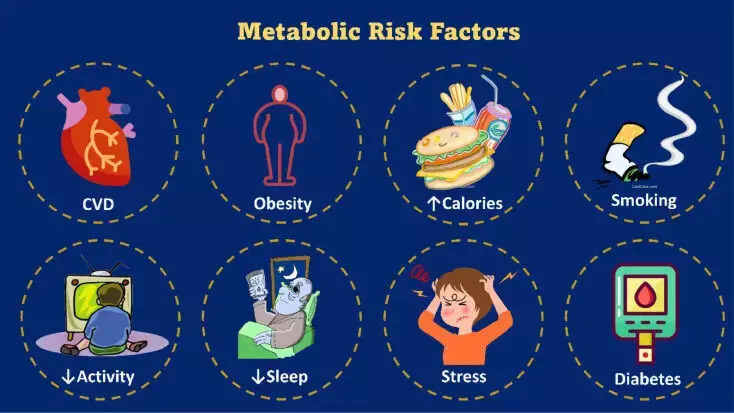- Home
- Medical news & Guidelines
- Anesthesiology
- Cardiology and CTVS
- Critical Care
- Dentistry
- Dermatology
- Diabetes and Endocrinology
- ENT
- Gastroenterology
- Medicine
- Nephrology
- Neurology
- Obstretics-Gynaecology
- Oncology
- Ophthalmology
- Orthopaedics
- Pediatrics-Neonatology
- Psychiatry
- Pulmonology
- Radiology
- Surgery
- Urology
- Laboratory Medicine
- Diet
- Nursing
- Paramedical
- Physiotherapy
- Health news
- Fact Check
- Bone Health Fact Check
- Brain Health Fact Check
- Cancer Related Fact Check
- Child Care Fact Check
- Dental and oral health fact check
- Diabetes and metabolic health fact check
- Diet and Nutrition Fact Check
- Eye and ENT Care Fact Check
- Fitness fact check
- Gut health fact check
- Heart health fact check
- Kidney health fact check
- Medical education fact check
- Men's health fact check
- Respiratory fact check
- Skin and hair care fact check
- Vaccine and Immunization fact check
- Women's health fact check
- AYUSH
- State News
- Andaman and Nicobar Islands
- Andhra Pradesh
- Arunachal Pradesh
- Assam
- Bihar
- Chandigarh
- Chattisgarh
- Dadra and Nagar Haveli
- Daman and Diu
- Delhi
- Goa
- Gujarat
- Haryana
- Himachal Pradesh
- Jammu & Kashmir
- Jharkhand
- Karnataka
- Kerala
- Ladakh
- Lakshadweep
- Madhya Pradesh
- Maharashtra
- Manipur
- Meghalaya
- Mizoram
- Nagaland
- Odisha
- Puducherry
- Punjab
- Rajasthan
- Sikkim
- Tamil Nadu
- Telangana
- Tripura
- Uttar Pradesh
- Uttrakhand
- West Bengal
- Medical Education
- Industry
Family-focused dietary intervention based on traditional diet can reduce risk of incident Metabolic syndrome

Family-focused dietary intervention based on a traditional diet can reduce the risk of incident Metabolic syndrome suggests a new study published in the JAMA Network Open.
The universal call to action for healthier and more sustainable dietary choices is the United Nations’s Sustainable Development Goals framework. The Atlantic diet, originating from the northwest of the Iberian Peninsula, represents an example of a traditional diet that aligns with these principles. A study was done to explore a 6-month intervention based on the Atlantic diet’s effects on metabolic and environmental health, assessing metabolic syndrome (MetS) incidence and the carbon footprint. The Galician Atlantic Diet study was a 6-month randomized clinical trial designed to assess the effects of this regional traditional diet on families’ eating habits. The study was conducted from March 3, 2014, to May 29, 2015, at a local primary health care centre in the rural town of A Estrada in northwestern Spain and involved a multisectoral collaboration. Families were randomly selected from National Health System records and randomized 1:1 to an intervention or control group. This secondary analysis of the trial findings was performed between March 24, 2021, and November 7, 2023. Over 6 months, families in the intervention group received educational sessions, cooking classes, written supporting material, and foods characteristic of the Atlantic diet. In contrast, those randomized to the control group continued with their habitual lifestyle. The main outcomes were MetS incidence, defined per National Cholesterol Education Program Adult Treatment Panel III guidelines, and carbon footprint emissions as an environmental metric using life cycle assessment with daily dietary intake as the functional unit.
Results Initially, 250 families were randomized (574 participants; mean [SD] age, 46.8 [15.7] years; 231 males [40.2%] and 343 females [59.8%]). The intervention group included 126 families (287 participants) and the control group, 124 families (287 participants). Ultimately, 231 families completed the trial. The intervention significantly reduced the risk of incident cases of MetS (rate ratio, 0.32; 95% CI, 0.13-0.79) and had fewer MetS components (proportional odds ratio, 0.58; 95% CI, 0.42-0.82) compared with the control condition. The intervention group did not have a significantly reduced environmental impact regarding carbon footprint emissions compared with the control group (−0.17 [95% CI, −0.46 to 0.12] kg CO2 equivalents/person/d). These findings provide important evidence that a family-focused dietary intervention based on a traditional diet can reduce the risk of incident MetS. Further research is needed to understand the underlying mechanisms and determine the generalizability to other populations, taking into account regional cultural and dietary variations
Reference:
Cambeses-Franco C, Gude F, Benítez-Estévez AJ, et al. Traditional Atlantic Diet and Its Effect on Health and the Environment: A Secondary Analysis of the GALIAT Cluster Randomized Clinical Trial. JAMA Netw Open. 2024;7(2):e2354473. doi:10.1001/jamanetworkopen.2023.54473
Dr. Shravani Dali has completed her BDS from Pravara institute of medical sciences, loni. Following which she extensively worked in the healthcare sector for 2+ years. She has been actively involved in writing blogs in field of health and wellness. Currently she is pursuing her Masters of public health-health administration from Tata institute of social sciences. She can be contacted at editorial@medicaldialogues.in.
Dr Kamal Kant Kohli-MBBS, DTCD- a chest specialist with more than 30 years of practice and a flair for writing clinical articles, Dr Kamal Kant Kohli joined Medical Dialogues as a Chief Editor of Medical News. Besides writing articles, as an editor, he proofreads and verifies all the medical content published on Medical Dialogues including those coming from journals, studies,medical conferences,guidelines etc. Email: drkohli@medicaldialogues.in. Contact no. 011-43720751


